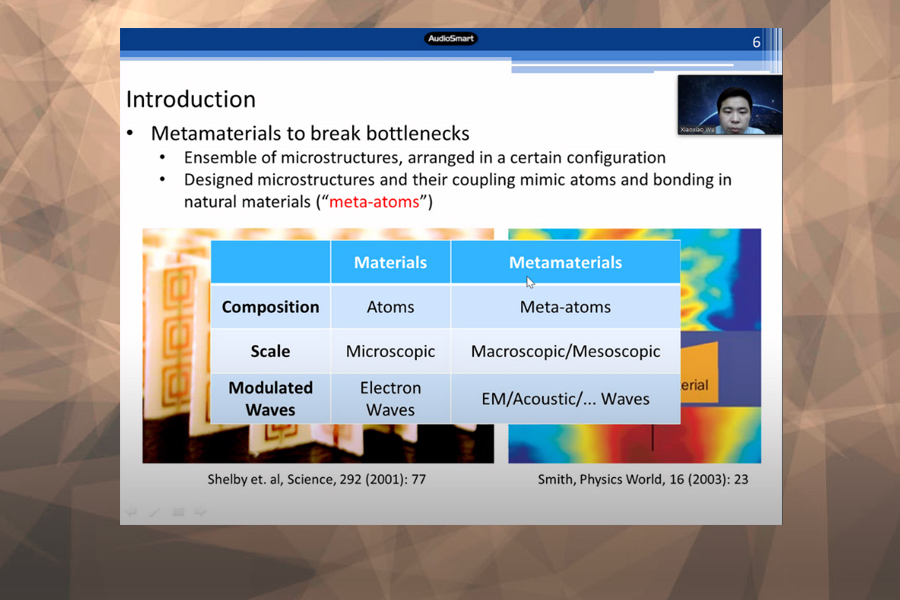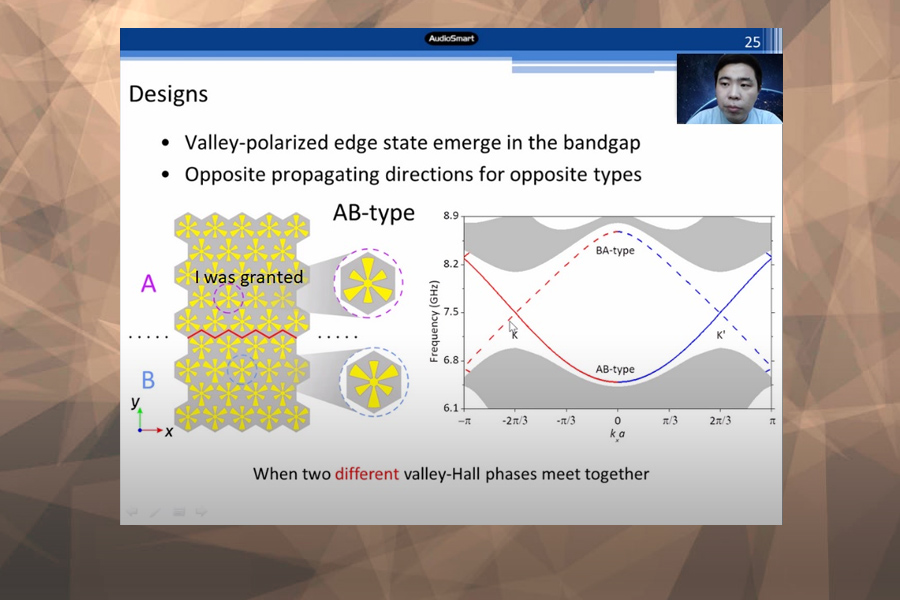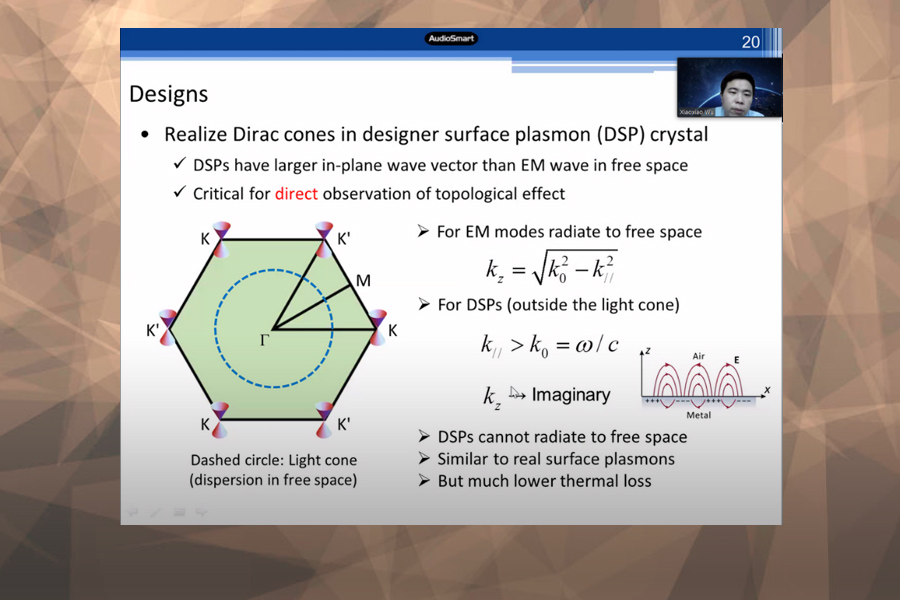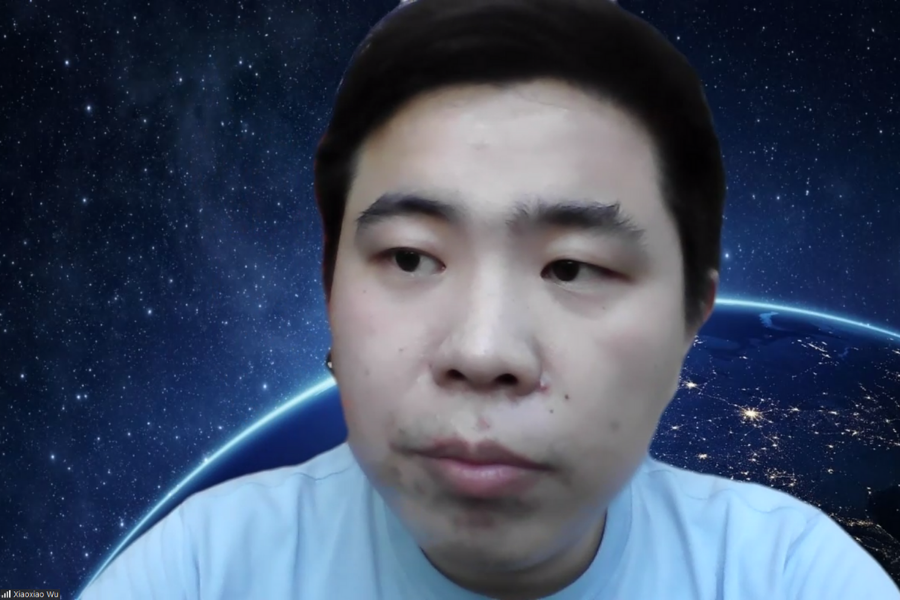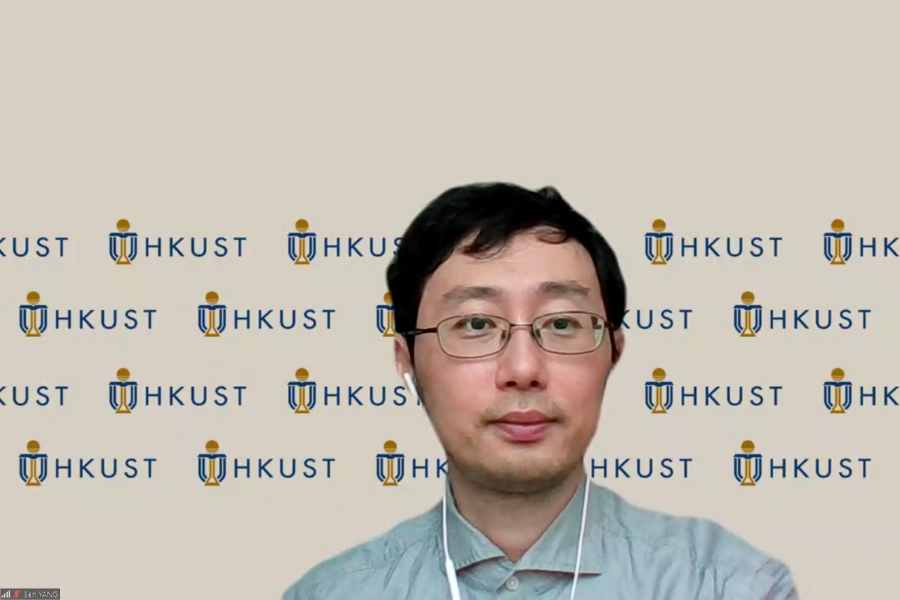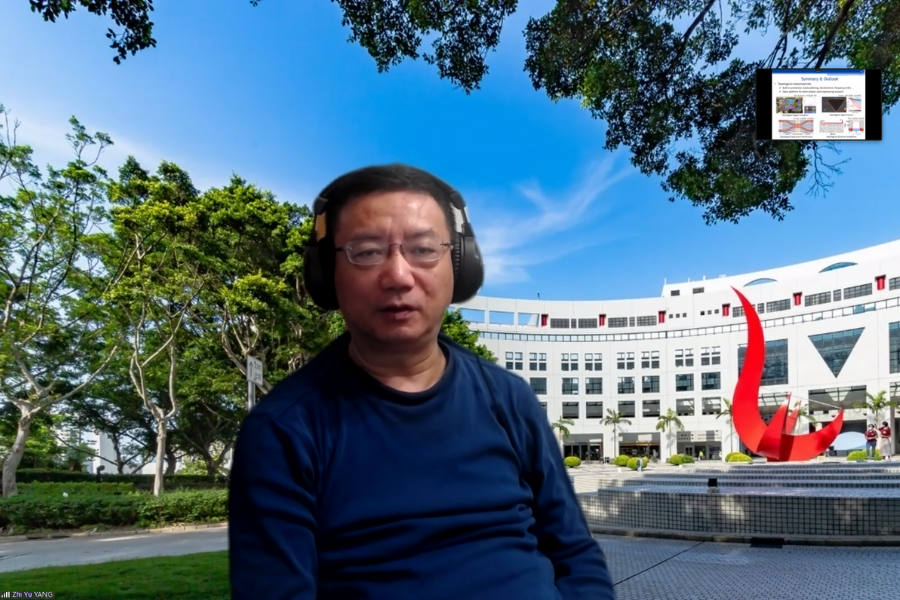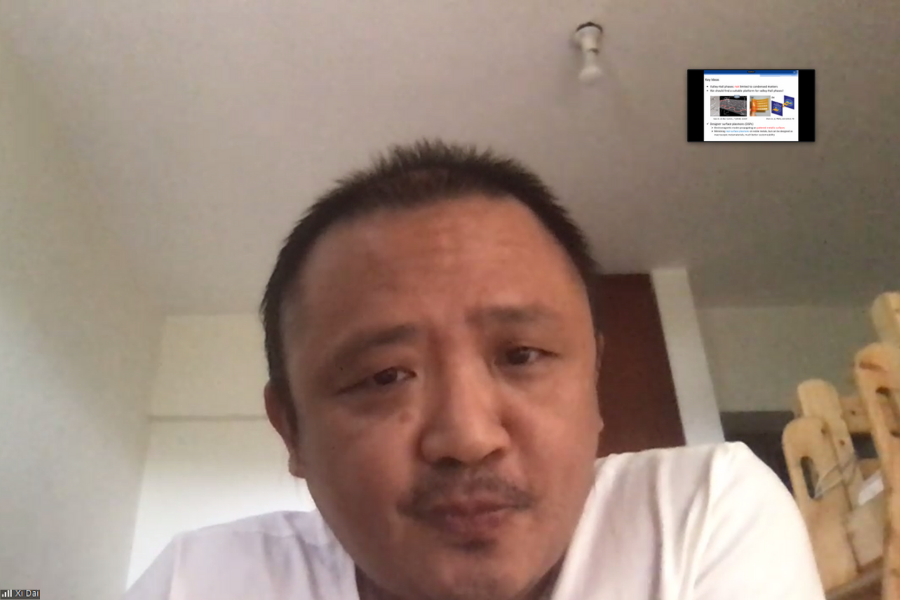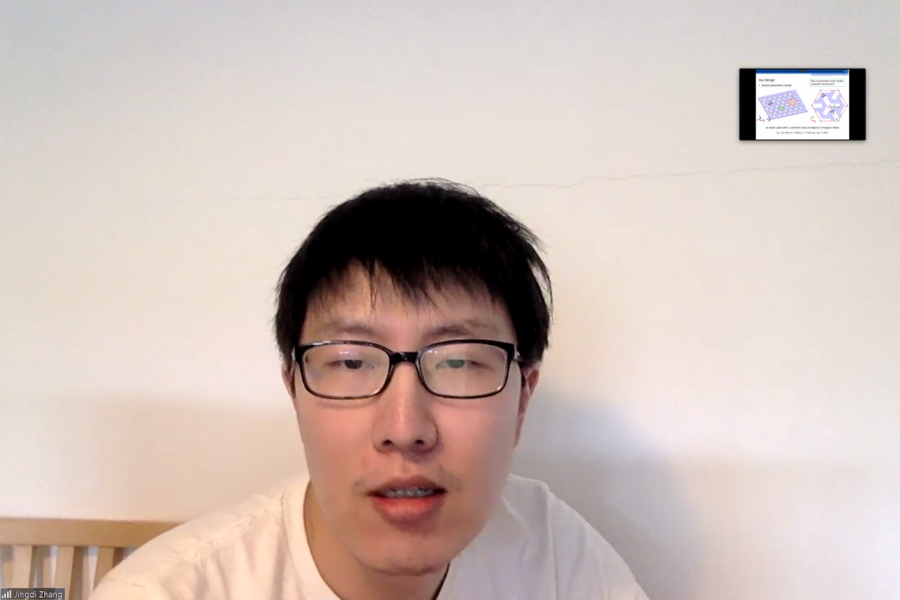Topological Metamaterials: Exploring New Possibilities to Control Waves
Abstract
Waves are everywhere in our life, and control of waves has become an integral part of modern human society, for example, from microwave ovens to medical imaging, and from wireless networks to optical fibers. However, control of waves using natural materials remains highly restricted due to many bottlenecks such as the diffraction limits and usually weak wave-matter interaction. Over the last two decades, researchers have proposed artificial microstructures, termed as “metamaterials”, to achieve control of waves beyond the natural limits. For metamaterials, designed microstructures play the role of atoms in natural materials, and they provide exceedingly better controllability and customizability in designs. Therefore, they also offer a diverse platform for investigation and application of fundamental physics proposed in condensed matters, of which many still remain elusive and challenging.
In this talk, the speaker will report his recent research on topological metamaterials, which explores new possibilities for control of waves with inspiration from topological physics that classifies phases of matter through global invariants. With developed metamaterials in topological phases, the speaker realizes topologically protected wave transport and wave-matter interaction against local disorders and perturbations. The research will advance the development of next-generation wave-control devices with built-in topological protections, important for interdisciplinary fields such as integrated photonics and phononics, ultrasensitive imaging, and optical quantum computing.
Towards such vision of topological metamaterials, the speaker will present on three breakthroughs:
1) The first experimental observation of valley-polarized topological edge state and its topological protections through designer surface plasmons, which can serve as the basis for development of topological waveguides;
2) The first scheme for realization of topological corner modes in arbitrary geometry through Dirac vortices, which can thoroughly relax the design constraints on topological corner resonators;
3) The first deterministic scheme for realization of type-II Dirac cones through band-folding mechanism, which can boost the development of topological sensing.
About the speaker
Dr. WU Xiaoxiao obtained his bachelor’s degree in Physics from Nanjing University in 2014, and PhD in Physics from the Hong Kong University of Science and Technology in 2018. He is currently a Post-doctoral Researcher in Prof. ZHANG Xiang’s group in the University of Hong Kong.
Dr. Wu’s research focuses on metamaterials, characterized by ensembles of artificial structures designed to possess material properties beyond natural ones. Specifically, his academic experience spans on a variety areas of wave metamaterials, including designing functional metamaterials for extraordinary control of waves, and exploring topological physics of waves through metamaterials. Until now, Dr. Wu has authored/co-authored 30 peer-reviewed journal papers, including top journals such as Nature Communications and Physical Review Letters, where he is the first author. His total citation number is 846, in which more than 600 citations belong to papers that he is the first-author, co-first author or (co-)corresponding author. His h-index is 14.
For Attendees' Attention:
This talk will be held online via Zoom. To attend, please join the Zoom meeting at https://hkust.zoom.us/j/91202947050 (Meeting ID: 912 0294 7050 / Passcode: 538278).
About the center
For more information, please refer to the center website at https://iascqt.hkust.edu.hk/.

